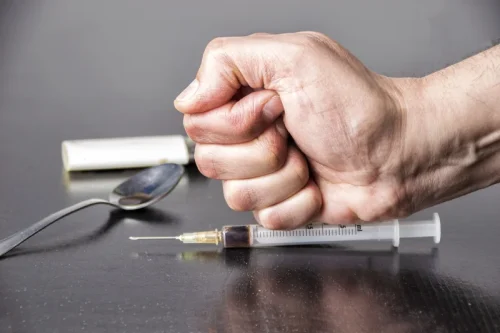Married to an Alcoholic: Supporting A Partner with AUD

Get professional help from an online addiction and mental health counselor from BetterHelp. Utilizing these strategies and seeking proper treatment for AUD can improve the lives of all involved and lead to a stronger, healthier relationship in the future. Unfortunately, studies consistently demonstrate that, regardless of the sex of the partner with AUD, if at least one person in the relationship has an AUD, the risk of DV is high. Romantic relationships affect alcohol—and alcohol affects romantic relationships. Research has shown that excessive alcohol use can lead to serious family consequences, including intimate partner violence and even divorce. Instead of trying to solve issues while under the influence, it’s OK to take a step back and address it at a later time, when you’re sober.
When Is Drinking a Problem in a Relationship? The Signs.

Because your inhibitions are lowered when you drink alcohol, you may be more likely to impulsively buy things without thinking through the consequences of those purchases. For instance, a person who is intoxicated may spend more money than planned at a bar. As a result, the time, effort, and resources formerly dedicated to life-sustaining activities, such as working and spending time with the family, are disrupted.
- We all like to do our best for our children but sometimes we are not too sure what that is.
- Peaks Recovery is medically staffed by a primary care physician, a psychiatrist, and round-the-clock nursing.
- Remember that you also deserve support, whether through support groups or engaging in therapy yourself.
- We get how challenging this can be, but it may help to learn about how alcohol affects the brain.
- Despite these potential health benefits, most doctors don’t recommend that someone who doesn’t drink start drinking, or for a moderate drinker to drink more.
Join a Support Group
- When a person begins to misuse alcohol, the gap between anticipated earnings and expenses and actual earnings and expenses can widen.
- Given that alcohol can contribute to all these issues, it’s likely that alcohol use has the potential to lead to separation issues in some couples.
- Through years of therapy, she realized, “I could not be responsible for the life or happiness of either of my parents — because I did feel responsible for a long time.”
- Research has shown that involving partners in the treatment at some point can be very important in achieving a successful outcome.
- In addition to satisfying state criteria, we have further received the highest recognition from the American Society of Addiction Medicine (ASAM) for our 3.7 and 3.5 levels of care.
- Addiction can cause you to value spending money on alcohol instead of prioritizing financial health for yourself and your family.
However, loved ones often want to help, such as by showing solidarity or hosting a gathering that feels safe for their loved one. Whenever possible, it’s best to have an open, respectful, and direct conversation with the individual in recovery, and ask how they feel about alcohol being present. Doing this in advance will allow time for both people to process the discussion and set clear expectations. Some people may be hesitant to seek treatment because they don’t want to abstain entirely. Moderation management or moderation treatment can be an effective approach, in which people learn responsible drinking habits through a structured program. Research suggests this form of treatment can help people shift from heavy to moderate drinking, improve quality of life, and enhance emotional well-being.
Addressing co-dependency while managing your drinking
The bottom line is that it can cause more arguments, hurt intimacy, and make a person unable to fulfill their role at home. But drinking too much can also take a toll on your friendships, family relationships, and even how you interact with your colleagues at work. When it comes to how alcohol affects relationships, you might notice more lying or deception from yourself or your spouse.
How Borderline Personality Disorder (BPD) Affects Men

Constant conflict or neglect can severely impact children of parents with alcohol addiction. They may experience loneliness, depression, guilt, anxiety, anger issues and an inability to trust others. Getting help for alcohol addiction will not only improve your relationships, it can also start you on your path toward a healthier, addiction-free future. There is a direct correlation between alcohol use in relationships and the quality of intimacy among partners. More specifically, the severity of relationship distress is influenced by alcohol consumption by one (or both) people’s alcohol consumption. While this isn’t an exhaustive list of the symptoms of alcohol use disorder, one of the biggest indicators is that alcohol is having a significantly negative impact on your life and your relationships with others.
Also, if it’s a male partner who is struggling with alcohol use disorder, he may also have difficulties getting and maintaining an erection. A few empirically validated practices can help identify strong treatment programs. Treatment centers should ideally have rigorous and reliable screening for substance use disorders and related conditions. They should have an integrated treatment approach that addresses other mental and physical health conditions.
Ways to reduce the effects of alcohol on your relationship
Drinking releases endorphins which can lead people to feel happy, energized, and excited. But alcohol is also classified as a depressant and can cause fatigue, restlessness, and depression. It may shift from stimulant to sedative in line with whether blood alcohol content is rising or falling. Given the power of alcohol on the brain, people who drink heavily may come to rely on it to regulate their mood. The idea that altered forms of consciousness such as mania or alcohol can enhance creativity is a popular belief. Researchers found that participants who had a few drinks were better and faster at creative problem solving than their sober counterparts.
In addition, seeking professional help can be beneficial in addressing alcohol-related issues in relationships. Couples therapy or addiction counseling can provide a safe space for partners to address underlying issues and work towards a healthier relationship dynamic. Still, this new research is among the best we have https://ecosoberhouse.com/ linking what is commonly considered moderate drinking to negative health consequences. Many treatments for people who have a problem with alcoholism will include the partner in some way. Research has shown that involving partners in the treatment at some point can be very important in achieving a successful outcome.
In this way, lasting recovery from alcohol dependency, in part, relies on making the relationship better. Aside from physical and mental abuse, alcohol addiction has other, significant consequences for relationships. If children are part of the equation, then there is a safeguarding issue that needs to be addressed. Naturally, the alcoholic parent may not be in a position to take care of a minor unsupervised. Indeed, how alcoholism affects relationships research by the American Academy of Child and Adolescent Psychiatry (AACAP) suggests that one in every five adult Americans resided with a relative who abused alcohol in their adolescence. Not only can this lead to a child developing codependency on a loved one’s alcohol abuse but also have a greater likelihood of having emotional trouble compared with children growing up in households where alcohol wasn’t an issue.
